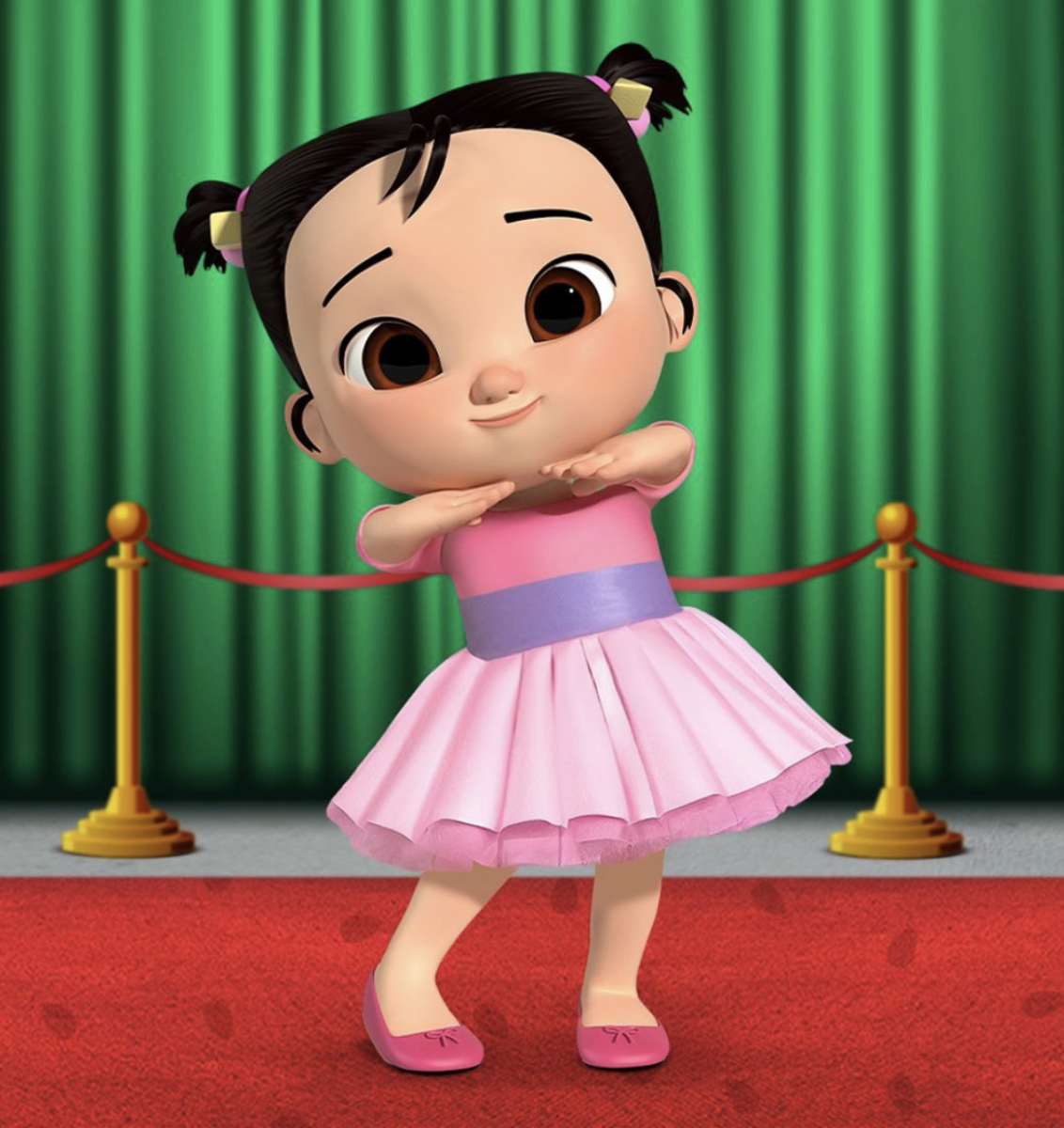To make sure I knew what I was talking about when I wrote this article, I did some firsthand research and watched an episode of “CoComelon.” I was unable to find a list of the best “CoComelon” episodes, so I chose one at random and watched season three episode two: “Learning With JJ.” Here’s what I noticed: the show lacked any sort of dialogue or overarching plot — in one song, Baby JJ gets ready for bed and, in another, ducklings leave the nest, but each of the segments was completely unconnected to the other segments in the show. The resulting episode watches more like a compilation of YouTube videos made for toddlers than anything resembling a normal episode of television.
Some child development experts say that shows like “CoComelon” are so stimulating that kids can experience withdrawal when it is time for them to stop watching. Jerrica Sannes, a child development expert based in Orange County, Calif., shared that “Cocomelon is so hyperstimulating that it actually acts as a drug, as a stimulant. The more children watch the show, the more the brain begins to expect that kind of stimulation. This makes it impossible for the child to play creatively solely without entertainment.”
While there is not yet any research on the effects that highly stimulating shows such as “CoComelon” have on child development and well-being, parents have shared anecdotes about the show changing their child’s behavior. I knew I had to go to Reddit to find the most accurate and helpful information. Some of the Redditors said things like “It’s banned in my house just cause it’s annoying as F**K,” and others said that they hadn’t noticed anything different from their child’s normal behavior. Many shared stories that they felt were proof that fast-paced shows were addictive for their children. One parent shared that they had to ban “Paw Patrol” because “turning it off would create some seriously genuine heartbreak and terror, even if I warned it was coming, set a timer, etc. it was seriously like he was addicted.” Another user said that they noticed that their daughter had “stopped playing and would just stare at the tv screen waiting for cocomellon [sic] to come on.”
Why does “CoComelon” affect kids in this way? Let’s take a look at how it’s produced — or should I say “engineered.” At Moonbug Entertainment, the London based company that produces many popular children’s television shows, toddlers and children are brought in to view episodes so that producers can figure out what aspects of the show are engaging for children. Next to a large screen showing kids “CoComelon,” a smaller screen showing the Distractatron is set up, with a loop of real-world scenes of adults doing household tasks playing on it. Whenever the toddler test subject looks away from “CoComelon” to watch the Distractatron, the producers write a note and that scene is altered to make it more engaging. The show is literally edited and engineered to create a product that children cannot tear themselves away from, and parents are dealing with the consequences.
“CoComelon” is said to be educational, but while I was watching, I had trouble believing it. Maybe some of the songs are about the alphabet, or the days of the week, but child development experts argue that the best way to educate a child is through playing and interacting with them, not through a screen. Research has shown that the right television shows can help children with autism learn social skills like empathy, following directions and asking for help, provided parents talk to their children about what they are watching. While children may be able to learn the alphabet or the numbers from a show such as “CoComelon,” the show lacks meaningful dialogue and social conflict, and it seems unlikely that engaging with that type of content would teach children the types of social skills they need to succeed in kindergarten and beyond.
As someone who doesn’t have children, it’s easy for me to say that, as a parent, I would never let my children watch television shows like “CoComelon.” It is also important to recognize that American society is especially unfriendly to children and working parents. If a busy parent needs half an hour to get chores done or make dinner,“CoComelon” or a similar show is readily available to distract their toddler or child. The cost of childcare is rapidly rising, and television shows are both more accessible and cheaper than having another person watch the kids while a parent does chores or makes dinner. And then think about the things people post on social media after an experience with a crying child on an airplane. (Yes, it is unpleasant to share a small space with a crying child, but children are also people who have a right to be on public transportation, and air travel is uncomfortable for everyone, which is probably why they are crying.) If I were a parent with an unhappy child facing a flight of any length, the first thing I would do is quickly sedate my child with “CoComelon.” There are problems with the show, but it also has its merits.
Eleanor Smith, FCRH ’26, is an American studies and history major from St. Paul, Minn.










































































































































































































Atlass • Apr 13, 2025 at 1:32 pm
I noticed that the more my daughter watched Cocomelon the less she played with her toys and she would repeat “Cocomelon” and would eventually hit if we told her no more. She’s only 1 so apparently they start hitting at this stage but my fiance and I are trying to get her out of it.
Chester • Apr 18, 2024 at 10:46 am
Check out the newly launched “CoCoMelon Lane” on Netflix. Dialogue and themes around managing emotions. Slower paced, better animation.